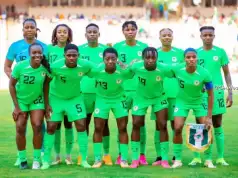The bill establishing the national social investment program agency has been signed into law by President Muhammadu Buhari.
According to a statement from Buhari’s adviser Bashir Ahmad, the President signed the bill into law on Monday.
Buhari wrote to the national legislature in November 2022 to ask for the executive bill’s passage.
After further development, the law was sent to the president by the upper and lower legislative chambers.
In order to guarantee the equal distribution of resources to vulnerable populations, such as children, youth, and women, the national social investment plan (NSIP) was established in 2015.
The programmes under the NSIP include the N-Power programme — an initiative aimed at building the skills of youth and promoting entrepreneurship.
Government enterprise and empowerment programme (GEEP) — an intervention to address the challenges of access to credit facilities and to provide soft loans to Nigerians through the trader moni, market moni and farmer moni initiatives.
National home-grown school feeding programme (NHGSFP) — an initiative to provide one nutritious meal a day to public primary school pupils to increase school enrolment, reducing the incidence of malnutrition.
Conditional cash transfer (CCT) programme — an initiative to provide cash transfers to vulnerable households as grants. The president also signed seven other proposed legislations into law, including the national senior secondary education bill and the chartered institute of power engineers bill.
A commission is created by the national senior secondary education bill, which also specifies minimum requirements for senior secondary education in Nigeria and how the national senior secondary education fund should be run.
The chartered institute of power engineers of Nigeria law established the institute, which is responsible for establishing the minimum level of knowledge and proficiency required of applicants for chartered power engineer status.
In addition, Buhari approved bills for the establishment of the Federal University of Health Sciences in Ila-Orangun, the Federal University of Health Sciences in Azare, the Chartered Institute of Development Studies and Administration of Nigeria, the federal institute of industrial research, and the Institute of strategic management of Nigeria.











